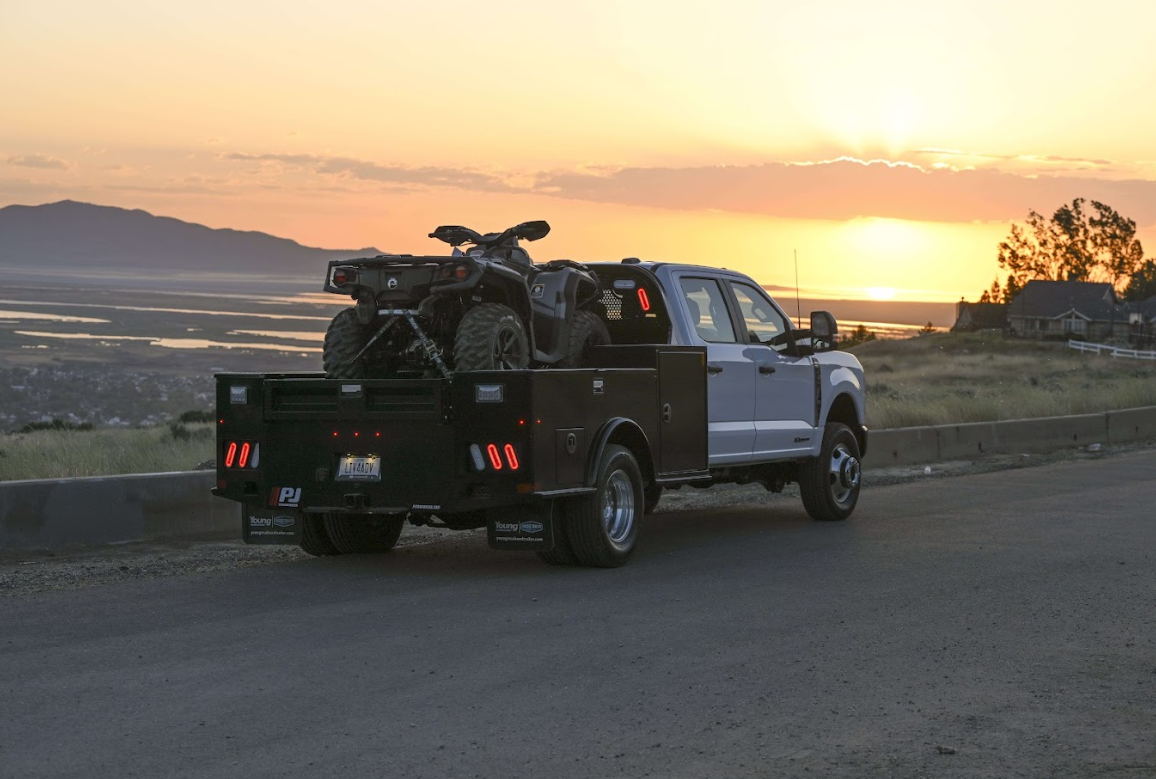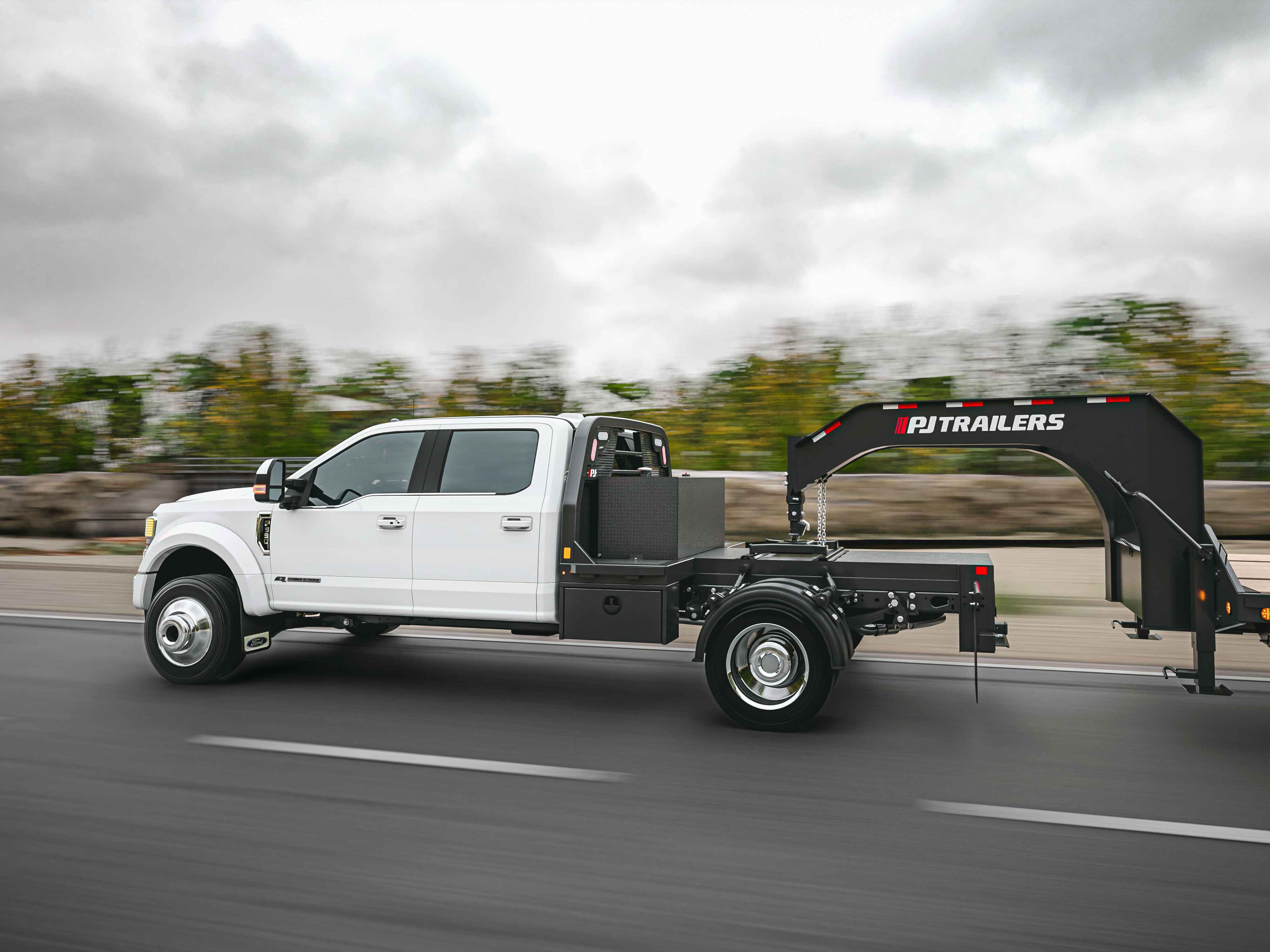Tent Comparison: Which is Best - a Ground Tent or Rooftop Tent?
Look around you the next time you’re camping, and you’ll likely see as many different setups as you see people. Some folks love camping in RVs. Others wouldn’t camp in anything but their favorite ground tent. Yet others prefer to have a small trailer with a rooftop tent on top or perhaps a campervan so they can camp in style.
RVs and campervans are pretty spendy, though, so if you want to start camping and overlanding on a smaller budget, a ground tent or rooftop tent is your best bet. The question is, which one is best?
Well, in this tent comparison, we’ll find out!
Tent Comparison: Setup and Portability

The MSR Hubba Hubba backpacking tent is compact, lightweight, and easy to set up.
When you get to camp and you’re wiped out from a long day of traveling, the last thing you want to do is spend a ton of time getting your tent set up. Ground tents and rooftop tents have advantages and disadvantages on that front…
Depending on the type of ground tent, the setup process might be as simple as popping it up and staking it down. On the other hand, some ground tents are far more intricate and have multiple poles, a rain fly, and vestibules that make a one-person setup all but impossible.
Naturally, if you choose a ground tent, you’ll want to investigate the setup process to ensure it fits your needs. If you’re a solo camper, avoid overly complex tent setups in favor of lightweight pop-up models that you can put up in a flash.
Of course, portability is a strong suit of most ground tents. It’s common for a ground tent to compact down into a small bag, which makes it easy to transport in your vehicle or in your backpack if you’re hiking. If you want a lean and mean tent setup, a ground tent is often the way to go.
On the flip side, setting up a rooftop tent is a whole different beast. As you can see in our video above, the initial setup is the most involved because you have to install the tent on your vehicle or trailer. This process often requires you to have a helper or two, because rooftop tents aren’t exactly lightweight.
The good news is that once a rooftop tent is on the roof, the major work is done. When you get to camp, just unlatch the tent, fold it open, and a few seconds later, your sleeping quarters are ready to go. Some rooftop tents even have enough room inside when they’re collapsed, so you can leave your pillows and bedding inside while you travel. Nice!
The portability factor of rooftop tents is also a little different from ground tents. Sure, they’re way heavier, which makes that initial installation process a bit tough, but from there, you really don’t have to do anything with a rooftop tent in order to get it from one place to the next.
Tent comparison: Ground tents and rooftop tents both get high marks for ease of set up and portability, but the type of setup and portability differ between the two.
Tent Comparison: Comfort and Sleeping Experience

Photo by Collin Quinn Lomax via Shutterstock
Your tent is a hugely important factor when it comes to getting a good night’s sleep. Again, you’ll find that ground tents and rooftop tents have distinct advantages and disadvantages.
Ground tents give you tons of flexibility regarding space and comfort. Ground tents come in all shapes and sizes, from one-person backpacking tents to sprawling multi-room tents that can accommodate 10-12 people or more (granted, those tents are much more complex to setup and transport). Truly, whatever your sizing needs, you can find a ground tent to match.
On the downside, sleeping on the ground can be a blessing or a curse. A camping spot with rocks and tree roots? No thanks - those suckers will make your camping experience miserable! Likewise, ventilation in ground tents can be hit or miss depending on the type and its construction. Luckily, modern ground tents often come with multiple windows, doors, or vents to help manage condensation.

A Roofnest Condor is a fold-out-style rooftop tent that offers room for up to three people.
If you go with a rooftop tent, you’ll reap the benefits of being up off the ground. Not only is this a benefit from the standpoint of not having rocks or tree roots poking you in the back as you sleep, but it’s also beneficial for getting away from insects and critters that might want to investigate you if you were on the ground.
Being elevated off the ground also improves airflow. On the one hand, this helps manage the temperature inside the tent more effectively. On the other hand, it can also contribute to condensation management. Most rooftop tents come with excellent ventilation anyway, and with the addition of an anti-condensation mat, you can rest assured your sleeping experience in a rooftop tent will be pretty darn good.
The downside is that rooftop tents are bound by the restrictions of your vehicle. Your vehicle and rack can only support so much weight. Furthermore, a rooftop tent can only expand so far to give you more space. These restrictions make rooftop tents a hard sell if you need something with a lot of space for a lot of people.
Tent comparison: Ground tents win when it comes to sizing options, but rooftop tents take the cake on the comfort factor.
Tent Comparison: Cost and Value

Want room to camp with the whole family? The MSR Habitude six-person tent is a great option.
Without a doubt, ground tents are often more affordable than rooftop tents. You can find inexpensive, small tents for well under $100. Heck, you can get a well-appointed ground tent like the MSR Habitute 6-person tent for under $700.
No matter where you fall on the sizing spectrum for ground tents, you can find good options at virtually any price point. And even if you go for a high-end ground tent, the chances are good that you’ll still spend less money than you would if you were to buy a low-end or mid-range rooftop tent.
Don’t forget, though, that there are additional costs associated with ground tents. In some cases, you might need to buy a tent footprint to protect the tent floor from roots and sharp rocks. You might also have to buy a sleeping pad or air mattress to put some space between you and the cold ground, and heavy-duty stakes that are easier to penetrate the ground and do a better job of holding your tent in place in windy conditions.

Rooftop tents, on the other hand, start with a much higher price point - often $1,500 or more for basic models like the Tuff Stuff Ranger to several thousand dollars for a really nice option (the OVS Sidewinder, for example, is about $3,900). However, many rooftop tent models come with mattresses, so you just need to add your bedding to hit the sack.
Likewise, many rooftop tents are made to be virtually bulletproof. The materials used in rooftop tents are often thicker and provide greater durability and weather resistance, which might translate into a longer service life than a ground tent. Additionally, rooftop tents traditionally hold their value longer than ground tents, so if you decide to upgrade in a few years, you’re likely to get more money out of your investment.
Tent comparison: Ground tents offer the advantage of a low price point for entry, but rooftop tents usually hold their value better over the long term.
Tent Comparison: Space and Storage

Lastly, space quickly becomes an important consideration when you have a lot of camping and overlanding gear. Here’s how ground tents and rooftop tents stack up on this metric…
As noted earlier, ground tents come in a much wider range of sizes, which gives you a greater ability to tailor the size of your tent to your specific needs. If you don’t need much space, you can get a really small tent; if you need room for the whole family, larger options are readily available.
Regardless of the size of ground tents, most pack down far smaller than their deployed size. However, you still need room to store them. Of course, you’ll need storage space for things like your air mattress, sleeping bag, and other gear, too.

A rooftop tent like the Eezi-Awn Sword gives you space inside your vehicle for extra gear.
Meanwhile, rooftop tents offer fewer sizing options for your camping needs. But the tradeoff is that they are ultra compact in terms of the space you need to store them. With your tent on top of your vehicle, the inside of your vehicle is freed up for other gear (or people!) to bring along with you.
Regarding long-term storage, a rooftop tent can stay on top of your vehicle year-round, if need be. Of course, doing so exposes the tent to more elements for longer periods, so you will notice deterioration of the tent faster than if you remove it and put it in storage for the winter. Still, leaving it on your vehicle is an option if you want to minimize the hassle of setup and maximize the amount of space you have in your garage.
Tent comparison: Ground tents offer more possibilities for interior space, but require more room inside your vehicle for storage. Rooftop tents minimize the amount of storage space required and maximize the room you have for other gear.
Which Offers a Better Camping Experience? A Ground Tent or a Rooftop Tent?

Is a rooftop tent like the Roofnest Condor XL a better option than a ground tent? It depends!
Given the quick insights outlined above about ground tents and rooftop tents, you can see that both options offer benefits and detriments. Determining which is best really comes down to evaluating which type of tent aligns with your specific needs and how you want to camp.
If you need a really big tent to accommodate your family or have a strict budget, a ground tent is the answer. If you want something with minimal setup once you get to camp and that takes up very little storage space, a rooftop tent is ideal.
But, your tent choice may not be that straightforward, and that’s why we’re here. We love camping, overlanding, and spending time outdoors, and we use that passion to help our customers gear up, get out, and live better - that’s why BTR (pronounced better) is in our name!
If you’re stumped about what kind of tent you need or just want some insights about the options available to you, simply get in touch, browse our site, or drop by our shop just off I-20 in Abilene. We’re happy to help!



